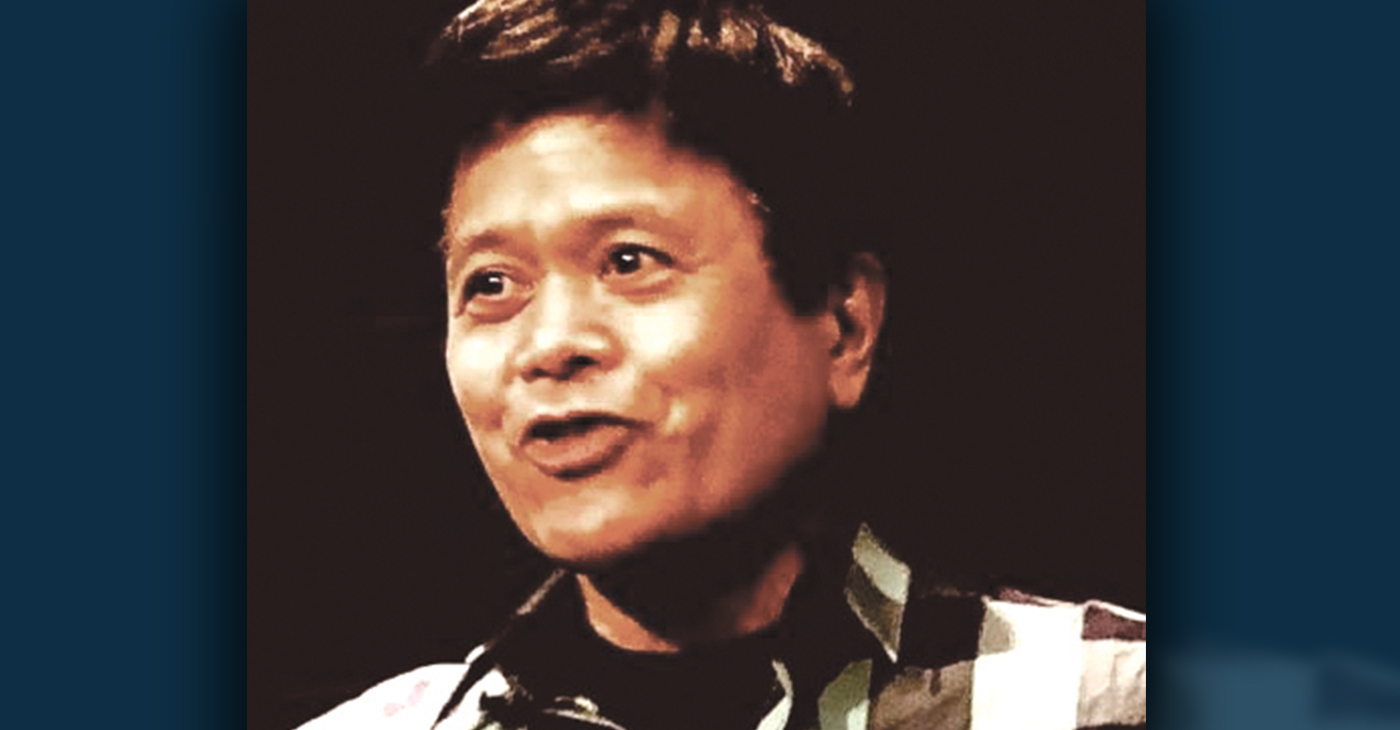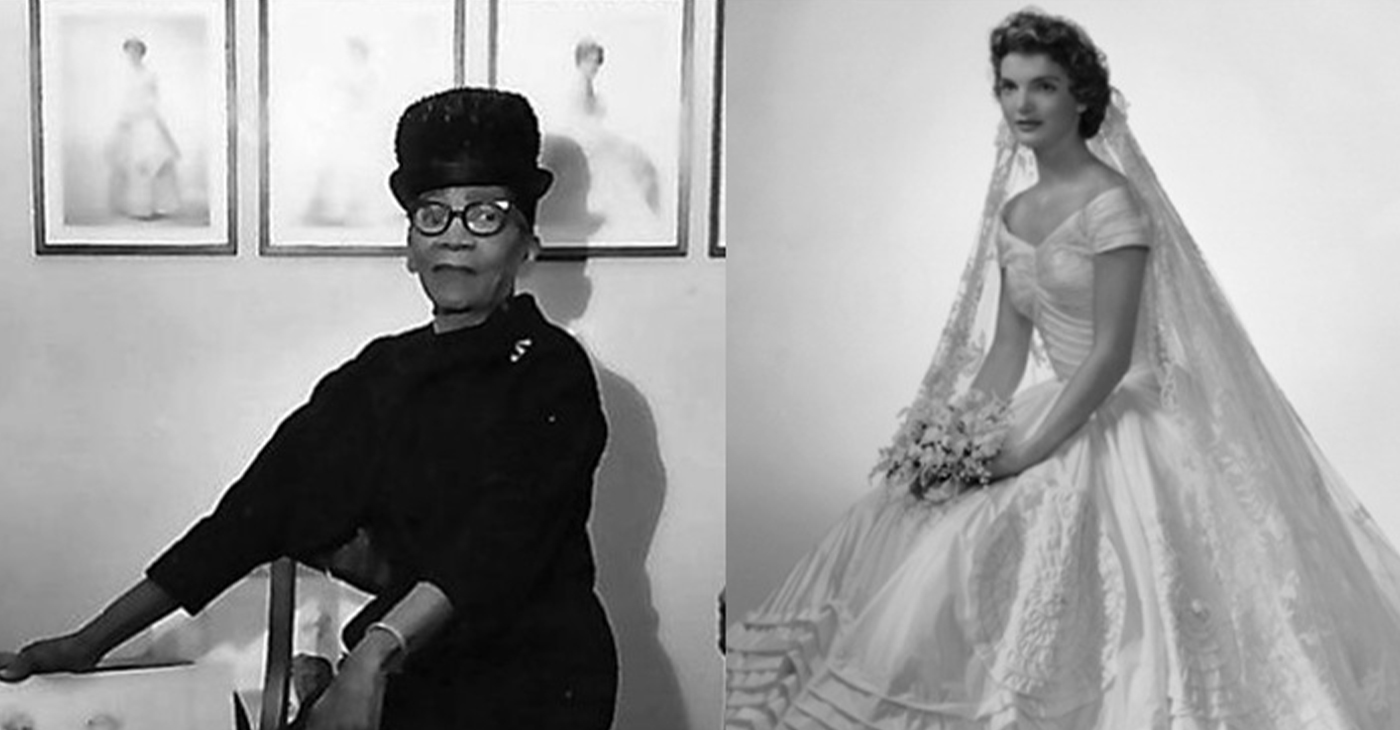Activism
OPINION: Black and Asians Are United No Matter What the New York Times Says
Blacks and Asians may not have done anything at the level or speed as the Times expected to happen over the past year. But it doesn’t mean “nothing” is happening. Communities around the country, Black and Asian, are working together because we all want the same thing– a sense of peace and safety where we live and work.

By Emil Guillermo
On CNN, Lisa Ling showcased one group in Oakland where Black youth are working with other young Asian Americans to provide escort services for elderly Asians. It’s no big deal, unless you’re among the elderly, scared by what is happening in our neighborhoods.
It’s an example of the grassroots efforts that show a real unity among Blacks and Asians. And it defies what you may have read in the New York Times.
Recently, that paper published the article “In Fight Against Violence, Asian And Black Activists Struggle to Agree,” subtitled, “Calls for unity have ebbed over disagreement on one main issue: policing.”
Really?
Since there is no central Black/Asian forum nationally, enterprising reporters are left to do a kind of journalism that on the surface seems legit, but all it does is put a fine point on nothing.
It’s done this way. Come up with a hypothesis. Talk to a selected group of historians, activists, commentators, which of course, shows the bias of the reporter. Present the group’s individual opinions — note I said opinion, not facts — and let all that become the driver of the hypothesis.
Present what you have with the sharpest point possible. Voila, a news story.
Was the Times truthful? Partially, but it also magnified its view into something larger than it is.
Blacks and Asians may not have done anything at the level or speed as the Times expected to happen over the past year. But it doesn’t mean “nothing” is happening. Communities around the country, Black and Asian, are working together because we all want the same thing– a sense of peace and safety where we live and work.
And a sense of justice when we are done wrong. Ask Angelo Quinto’s family.
Last Christmas, Quinto, a 30-year-old Filipino American Navy veteran from Antioch was having a “mental episode” when his family called the police seeking assistance. Quinto was cuffed and held face to the ground.
Sound familiar? It was the “George Floyd” police move, and Quinto was under the knee of an Antioch cop. Quinto lost consciousness, then died later at a hospital. Was that good policing?
The police have denied doing anything wrong and have escaped any responsibility so far. But Quinto’s family is seeking a wrongful death suit against the City of Antioch.
The family called the police for help, not for them to kill their family member. The family has hired John Burris, the noted Oakland civil rights attorney.
Blacks and Asians are working together.
Recently, there has been a rash of crimes committed by Blacks on Asians, notably in San Jose, Calif. But when these crimes happen, they don’t generally reflect the sentiments of communities, just the criminals. You can’t use that to fan the narrative of “communities at war.”
In a Twitter thread, here’s the reaction of the group #StopAAPIHate, which has monitored crimes against Asians during the pandemic.
“By focusing on the divide between AAPIs and Black communities over policing, this [New York Times] article adds to an all-too common and often exaggerated narrative of tensions between AAPIs and other communities of color,” the group tweeted.
“According to our recent survey, AAPIs believe the top three solutions to anti-AAPI hate are actually education, community-based initiatives and civil rights enforcement,” the thread added.
Policing is an issue, sure. But not as significant a divide among us as the Times makes it sound.
It’s different from the hot rhetoric of the mainstream that stumbles over the word “defunding” as if it means abolition of police, vs. “retraining,” or the “reallocating of resources,” which actually helps people get what they need when they call police.
Here’s the question that must be asked: Why do police so often become the “bad guys”?
It’s an issue we must pursue in 2022. Together.
But don’t be mistaken: Black and Asian communities are working together. We want the same thing — a sense of peace and safety where we live and work. And a sense of justice when we are done wrong.
Emil Guillermo is a journalist and commentator. Listen to his show on Facebook on EmilGuillermo.Media. Or on www.amok.com
Activism
Ann Lowe: The Quiet Genius of American Couture
Lowe was born in Clayton, Alabama, into a family of gifted seamstresses. Her mother and grandmother were well-known dressmakers who created exquisite gowns for women in the area. By the time Lowe was a young girl, she was already showing extraordinary talent — cutting, sewing, and decorating fabric with a skill that far exceeded her age. When her mother died unexpectedly, Lowe – only 16 years old then – took over her mother’s sewing business, completing all the orders herself.

By Tamara Shiloh
Ann Cole Lowe, born Dec.14, 1898, was a pioneering American fashion designer whose extraordinary talent shaped some of the most widely recognized and celebrated gowns in U.S. history.
Although she designed dresses for society’s wealthiest families and created masterpieces worn at historic events, Lowe spent much of her life in the shadows — uncredited, underpaid, yet unmatched in skill. Today, she is celebrated as one of the first nationally recognized African American fashion designers and a true visionary in American couture.
Lowe was born in Clayton, Alabama, into a family of gifted seamstresses. Her mother and grandmother were well-known dressmakers who created exquisite gowns for women in the area. By the time Lowe was a young girl, she was already showing extraordinary talent — cutting, sewing, and decorating fabric with a skill that far exceeded her age. When her mother died unexpectedly, Lowe – only 16 years old then – took over her mother’s sewing business, completing all the orders herself. This early responsibility would prepare her for a lifetime of professional excellence.
In 1917, Lowe moved to New York City to study at the S.T. Taylor Design School. Although she was segregated from White students and forced to work separately, she, of course, excelled, graduating earlier than expected. Her instructors quickly recognized that her abilities were far above the typical student, especially her skill in hand-sewing, applique, and intricate floral embellishment – techniques that would become her signature.
Throughout the 1920s and 1930s, she designed gowns for high-society women in Florida and New York, operating boutiques and working for prestigious department stores. Her reputation for craftsmanship, originality, and elegance grew increasingly. She was known for creating gowns that moved beautifully, featured delicate hand-made flowers, and looked sculpted rather than sewn. Many wealthy clients specifically requested “an Ann Lowe gown” for weddings, balls, and galas.
Her most famous creation came in 1953: the wedding gown worn by Jacqueline Bouvier when she married Massachusetts Sen. John F. Kennedy. The dress – crafted from ivory silk taffeta with dozens of tiny, pleated rosettes – became one of the most photographed bridal gowns in American history. Despite this achievement, Lowe received no public credit at the time. When a flood destroyed her completed gowns 10 days before the wedding, she and her seamstresses worked day and night to remake everything – at her own expense. Her dedication and perfectionism never wavered.
She eventually opened “Ann Lowe Originals,” her own salon on New York’s Madison Avenue. She served clients such as the Rockefellers, DuPonts, Vanderbilts, and actresses like Olivia de Havilland. Yet even with her wealthy clientele, she struggled financially, often undercharging because she wanted every dress to be perfect, even if it meant losing money.
Lowe’s contributions were finally recognized later in life. Today, her exquisite gowns are preserved in museums, including the Smithsonian National Museum of African American History and Culture and the Metropolitan Museum of Art.
In the last five years of her life, Lowe lived with her daughter Ruth in Queens, N.Y. She died at her daughter’s home on Feb. 25, 1981, at the age of 82, after an extended illness.
Activism
2025 in Review: Seven Questions for Black Women’s Think Tank Founder Kellie Todd Griffin
As the president and CEO of the California Black Women’s Collective Empowerment Institute, Griffin is on a mission to shift the narrative and outcomes for Black women and girls. She founded the nation’s first Black Women’s Think Tank, securing $5 million in state funding to fuel policy change.

By Edward Henderson
California Black Media
With more than 25 years of experience spanning public affairs, community engagement, strategy, marketing, and communications, Kellie Todd Griffin is recognized across California as a leader who mobilizes people and policy around issues that matter.
As the president and CEO of the California Black Women’s Collective Empowerment Institute, Griffin is on a mission to shift the narrative and outcomes for Black women and girls. She founded the nation’s first Black Women’s Think Tank, securing $5 million in state funding to fuel policy change.
Griffin spoke with California Black Media (CBM) about her successes and setbacks in 2025 and her hopes for 2026.
Looking back at 2025, what stands out to you as your most important achievement and why?
Our greatest achievement in this year is we got an opportunity to honor the work of 35 Black women throughout California who are trailblazing the way for the next generation of leaders.
How did your leadership, efforts and investments as president and CEO California Black Women’s Collective Empowerment Institute contribute to improving the lives of Black Californians?
We’re training the next leaders. We have been able to train 35 women over a two-year period, and we’re about to start a new cohort of another 30 women. We also have trained over 500 middle and high school girls in leadership, advocacy, and financial literacy.
What frustrated you the most over the last year?
Getting the question, “why.” Why advocate for Black women? Why invest in Black people, Black communities? It’s always constantly having to explain that, although we are aware that there are other populations that are in great need, the quality-of-life indices for Black Californians continue to decrease. Our life expectancies are decreasing. Our unhoused population is increasing. Our health outcomes remain the worst.
We’re not asking anyone to choose one group to prioritize. We are saying, though, in addition to your investments into our immigrant brothers and sisters – or our religious brothers and sisters – we are also asking you to uplift the needs of Black Californians. That way, all of us can move forward together.
What inspired you the most over the last year?
I’ve always been amazed by the joy of Black women in the midst of crisis.
That is really our secret sauce. We don’t let the current state of any issue take our joy from us. It may break us a little bit. We may get tired a little bit. But we find ways to express that – through the arts, through music, through poetry.
What is one lesson you learned in 2025 that will inform your decision-making next year?
Reset. It’s so important not to be sitting still. We have a new administration. We’re seeing data showing that Black women have the largest unemployment rate. We’ve lost so many jobs. We can have rest – we can be restful – but we have to continue the resistance.
In one word, what is the biggest challenge Black Californians faced in 2025?
Motivation.
I choose motivation because of the tiredness. What is going to motivate us to be involved in 2026?
What is the goal you want to achieve most in 2026?
I want to get Black Californians in spaces and places of power and influence – as well as opportunities to thrive economically, socially, and physically.
Activism
BRIDGE Housing President and CEO Ken Lombard Scores Top Honors for Affordable Housing Leadership
The Development Company of the Year honor represents a milestone for BRIDGE Housing, which received the Gold award—its top designation—in a category that included both affordable and market-rate developers. The recognition caps what has been one of the strongest growth periods in the organization’s 42-year history.

By the Oakland Post Staff
San Francisco-based BRIDGE Housing and its president and CEO, Ken Lombard, have been named among the nation’s housing industry standouts, earning two of the top prizes at the 2025 Multi-Housing News Excellence Awards.
BRIDGE Housing was named Development Company of the Year, while Lombard received Executive of the Year, recognition that places the nonprofit affordable housing provider alongside leading national developers of both affordable and market-rate housing.
The awards were announced in New York for the accomplishments achieved during 2024.
Multi-Housing News is one of the industry’s most respected publications. Award winners are selected by a panel of housing professionals, including multifamily developers, architects, and owners.
“BRIDGE Housing is deeply honored to be recognized by Multi-Housing News and our industry peers,” Lombard said. “These awards are a testament to the high-impact, mission-driven work by BRIDGE’s exceptional team to deliver quality affordable housing and support services that empower residents to improve their lives.”
The Development Company of the Year honor represents a milestone for BRIDGE Housing, which received the Gold award—its top designation—in a category that included both affordable and market-rate developers. The recognition caps what has been one of the strongest growth periods in the organization’s 42-year history.
In 2024, BRIDGE significantly expanded its footprint across California, Oregon, and Washington. That momentum continued into 2025, with portfolio growth of 9%, including the addition of nine new communities and 1,187 new or acquired affordable housing units. The nonprofit also added three new projects to its development pipeline as it nears a portfolio of 16,000 units.
The growth reflects a broader strategy aimed at accelerating both acquisitions and ground-up development, supported by partnerships with major financial institutions and innovative capital markets strategies. BRIDGE has also emphasized high-quality design and deep community engagement as central elements of its approach.
BRIDGE became the first affordable housing developer to issue tax-exempt construction bonds for one of the largest affordable housing projects in Portland, Ore., leveraging its strong credit rating.
Earlier this year, the nonprofit launched the BRIDGE Housing Impact Fund, with a goal of investing $1 billion to preserve and create affordable housing. It also closed on $175 million in taxable general-obligation bonds after increasing the offering in response to strong investor demand.
The company’s performance also underscores the role of Lombard, who has led BRIDGE since 2021 and was honored individually for his leadership.
Under Lombard’s tenure, BRIDGE has built a new leadership team with experience drawn from both the nonprofit and private sectors, with a particular focus on what the organization describes as efforts to “break the status quo,” especially in affordable housing finance. Those initiatives have helped reduce capital and construction costs, strengthen relationships with institutional investors, and expand resident support services.
Today, BRIDGE Housing serves more than 33,000 residents across 139 communities on the West Coast.
“Ken has dedicated his career to innovative real estate solutions that improve the quality of life in underserved neighborhoods,” said Kenneth Novack, chair of BRIDGE Housing’s board of directors. “His visionary leadership and the work of our incredible team have positioned BRIDGE for long-term growth that will extend our impact throughout the West Coast.”
Founded in 1983, BRIDGE Housing has helped create more than 23,000 affordable homes with a total development cost of $6 billion.
-

 Activism4 weeks ago
Activism4 weeks agoOakland Post: Week of November 19 – 25, 2025
-

 #NNPA BlackPress3 weeks ago
#NNPA BlackPress3 weeks agoLIHEAP Funds Released After Weeks of Delay as States and the District Rush to Protect Households from the Cold
-

 #NNPA BlackPress4 weeks ago
#NNPA BlackPress4 weeks agoBeyoncé and Jay-Z make rare public appearance with Lewis Hamilton at Las Vegas Grand Prix
-

 Alameda County2 weeks ago
Alameda County2 weeks agoSeth Curry Makes Impressive Debut with the Golden State Warriors
-

 Activism3 weeks ago
Activism3 weeks agoOakland Post: Week of November 26 – December 2, 2025
-

 #NNPA BlackPress3 weeks ago
#NNPA BlackPress3 weeks agoSeven Steps to Help Your Child Build Meaningful Connections
-

 #NNPA BlackPress3 weeks ago
#NNPA BlackPress3 weeks agoSeven Steps to Help Your Child Build Meaningful Connections
-

 #NNPA BlackPress4 weeks ago
#NNPA BlackPress4 weeks agoLewis Hamilton set to start LAST in Saturday Night’s Las Vegas Grand Prix
















































